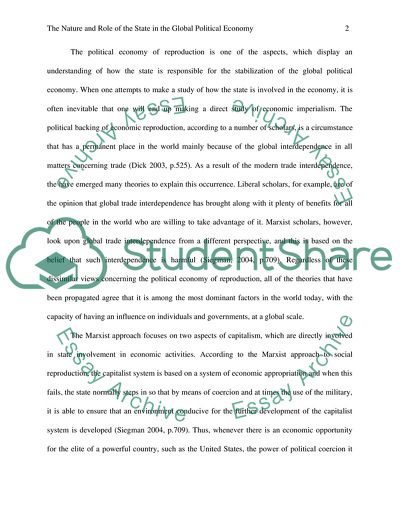Cite this document
(The Nature and Role of the State in the Global Political Economy Literature review Example | Topics and Well Written Essays - 3750 words, n.d.)
The Nature and Role of the State in the Global Political Economy Literature review Example | Topics and Well Written Essays - 3750 words. https://studentshare.org/macro-microeconomics/1812385-what-does-the-political-economy-of-reproduction-tell-us-about-the-nature-and-role-of-the-state-in-the-global-political-economy
The Nature and Role of the State in the Global Political Economy Literature review Example | Topics and Well Written Essays - 3750 words. https://studentshare.org/macro-microeconomics/1812385-what-does-the-political-economy-of-reproduction-tell-us-about-the-nature-and-role-of-the-state-in-the-global-political-economy
(The Nature and Role of the State in the Global Political Economy Literature Review Example | Topics and Well Written Essays - 3750 Words)
The Nature and Role of the State in the Global Political Economy Literature Review Example | Topics and Well Written Essays - 3750 Words. https://studentshare.org/macro-microeconomics/1812385-what-does-the-political-economy-of-reproduction-tell-us-about-the-nature-and-role-of-the-state-in-the-global-political-economy.
The Nature and Role of the State in the Global Political Economy Literature Review Example | Topics and Well Written Essays - 3750 Words. https://studentshare.org/macro-microeconomics/1812385-what-does-the-political-economy-of-reproduction-tell-us-about-the-nature-and-role-of-the-state-in-the-global-political-economy.
“The Nature and Role of the State in the Global Political Economy Literature Review Example | Topics and Well Written Essays - 3750 Words”. https://studentshare.org/macro-microeconomics/1812385-what-does-the-political-economy-of-reproduction-tell-us-about-the-nature-and-role-of-the-state-in-the-global-political-economy.


